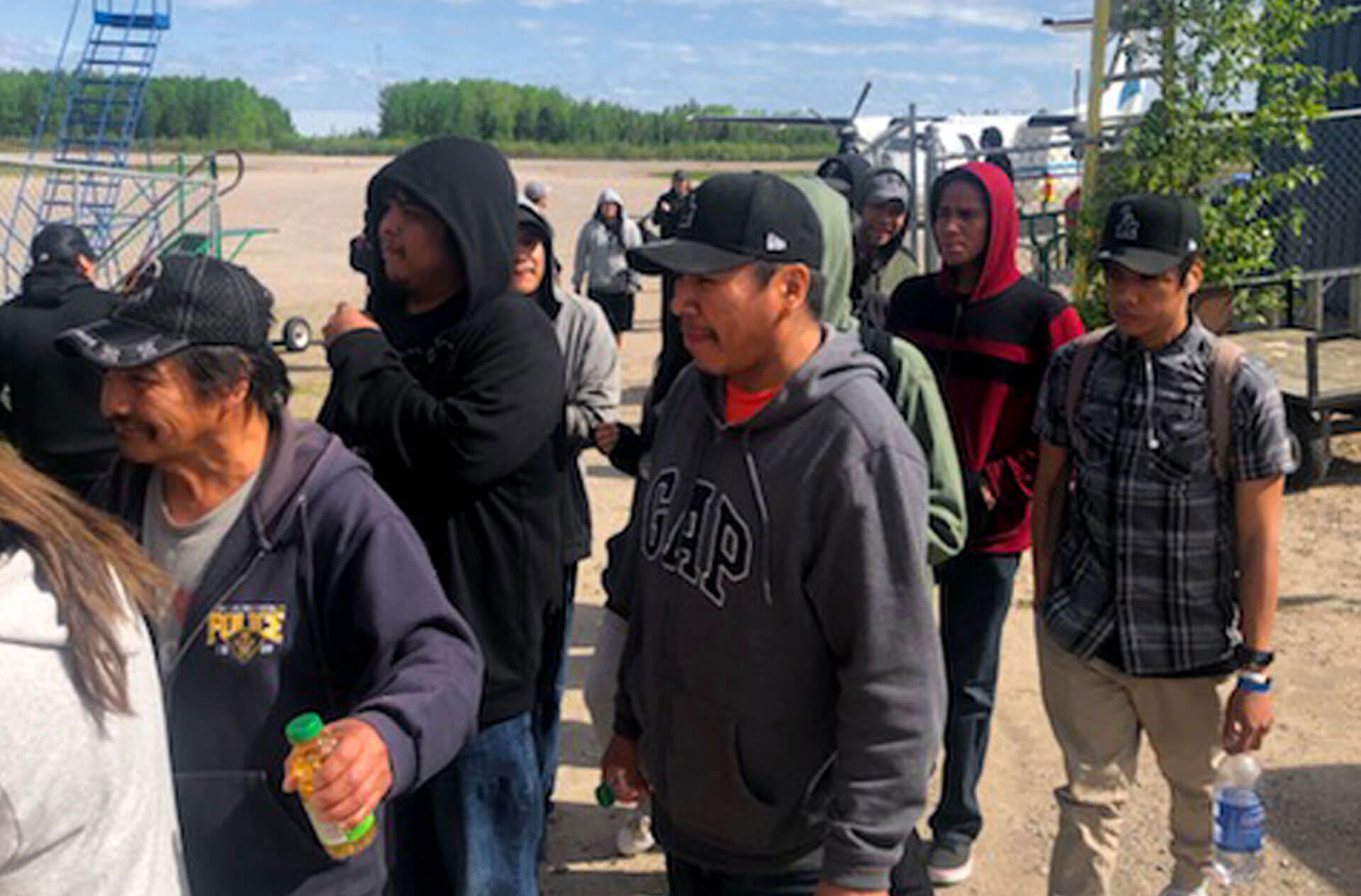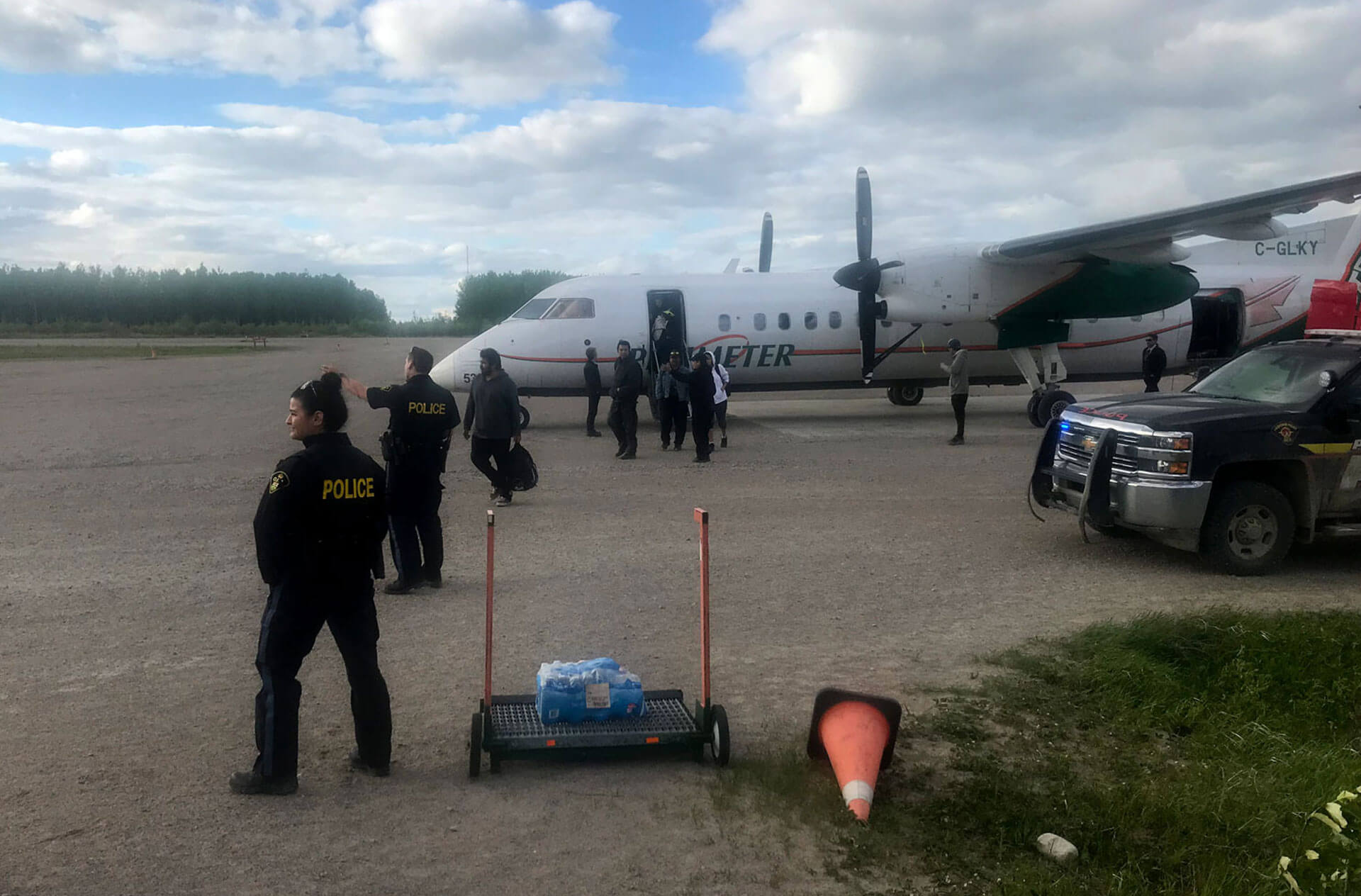Mere months after being elected Chief of Pikangikum First Nation, Chief Amanda Sainnawap made the difficult decision on May 30th, 2019 to declare a State of Emergency in Pikangikum due to a large nearby forest fire that was blowing heavy smoke into the community. Residents were evacuated to cities across Northern Ontario and Manitoba with focus placed on removing vulnerable populations including elders, children and families. Staff of the Independent First Nations Alliance were flown into Pikangikum to coordinate evacuation efforts from the Pikangikum High School to ensure the safety of their community. Nearly half the community was evacuated to various host communities; several Ontario communities and also Winnipeg, Manitoba, and 100 community members were in Thunder Bay under the direct care of IFNA. After two weeks, the fire was declared under control and the return of community members began.


One month following the first evacuation, Pikangikum First Nation was forced once again to declare a State of Emergency due to the threat of forest fires raging over 50,000 hectares with its closest edge only 2.5 kilometres away from the community. Beginning on July 7th, many community members were relocated to cities across Northern Ontario including Hearst, Kapuskasing, Lac Seul and Thunder Bay, and as far as Regina, Saskatchewan. Independent First Nations Alliance staff were again flown into Pikangikum to coordinate evacuation efforts.
This time around, the Independent First Nations Alliance recognized that there was a dangerous lack of host communities available to take on evacuees. Understanding that their people were in danger, the IFNA team rose to the occasion and took an active role in the evacuation efforts. They were called upon by Chief Sainnawap to host over 700 community members in Thunder Bay alone. The Emergency Operations centre, led by IFNA CEO Mathew Hoppe, worked alongside and combined with the continuous efforts of Chief and Council, IFNA staff, and other agencies brought in to assist kept people safe and cared for.
For two weeks, the Pikangikum evacuees were guests under the IFNA banner in Lac Seul and Thunder Bay. All involved put forth herculean efforts to ensure the safety and comfort of their guests around the clock. They worked with compassion and teamwork, truly demonstrating the extent of their capabilities and their dedication to the people they serve.
